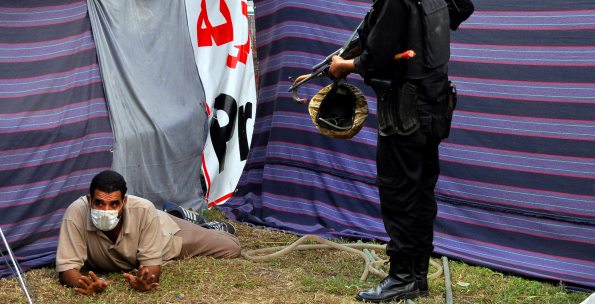Since the military intervention in Egypt, many observers of Middle Eastern politics have tried to evaluate the geopolitical consequences of the regime change in Egypt. The majority of these scholars assert that Turkey and Qatar would lose from the new political developments in the region, since they were the two countries that endorsed the revolutions in the Arab world. Turkey in particular, with its extremely overt criticisms of the military intervention, is being identified as a country that will certainly lose under the current circumstances. Although these experts are not equally clear about who benefits from this new political situation, Saudi Arabia and other Gulf States, Israel, or the West are most often pronounced as the winners. Saudi Arabia’s investment in the new regime is expected to give it a strategic edge, whereas Western governments are expecting the new regime to be a more pro-Western government.
It is not only short sighted to claim that a military coup in one country would bring a strategic advantage to other countries in the region, but also equally incomprehensible to argue that the coup would result in certain positive outcomes for the region as a whole. If the new regime in Egypt survives in the coming days, nobody will win a strategic advantage; rather, all actors in the Middle East will lose dearly, most significantly the Egyptian people themselves.
EGYPT WILL NOT WIN…
The reverse wave of democratization during a democratic experiment is not unique to the Egyptian revolution. However, most of the instances of counterrevolutions during democratic transformations bring more harm than good to the overall situation of the county. They serve to delay solutions to structural and economic problems, and more dangerously, create a major rift among different segments of the population. This scenario has been apparent in Egypt since the beginning of June and has reached its nadir when General Sisi called upon his supporters to organize demonstrations. Counter-revolutions that are aided by the army are even more problematic. Allowing the military to intervene and gain control of the political system not only interrupts the democratic transition, but also creates a precedent for the future military involvement in politics. This precedent creates a situation in which the military no longer waits for a call from the people, but acts in its self-interest and creates military tutelage to control the country and its political systems. Moreover, although the military looks like a unified body in most countries, regular involvement in the political process creates political polarization within the military, destroying its professionalism and making these groups vulnerable to external provocations. In its extreme forms, this politicization of the army creates another recipe for disaster by militarizing internal strife between different factions of the government.
The side effects of the military coup are not limited to the problems of instability. In countries that experience coups and military interventions, the transition period between the military coup and elections usually witnesses a crackdown on former government officials in addition to human rights abuses, extrajudicial killings, torture, antidemocratic practices, high levels of corruption, and strict limitations on basic freedoms and liberties. The arrest of high-level Muslim Brotherhood officials and the closing of some of the TV channels in Egypt have been early indications of these possible human rights abuses. The Egyptian military’s attack on pro-Morsi demonstrators on July 8 and subsequently also demonstrated the possible consequences of a military coup on the political process in the country. Without democratic accountability it is impossible to hold any government official responsible for the wrongdoings. Moreover, the nationalism that Sisi’s regime is propagating in Egypt is increasingly leading to a xenophobic political atmosphere in the country. Pro-coup demonstrators are chanting slogans against other co



